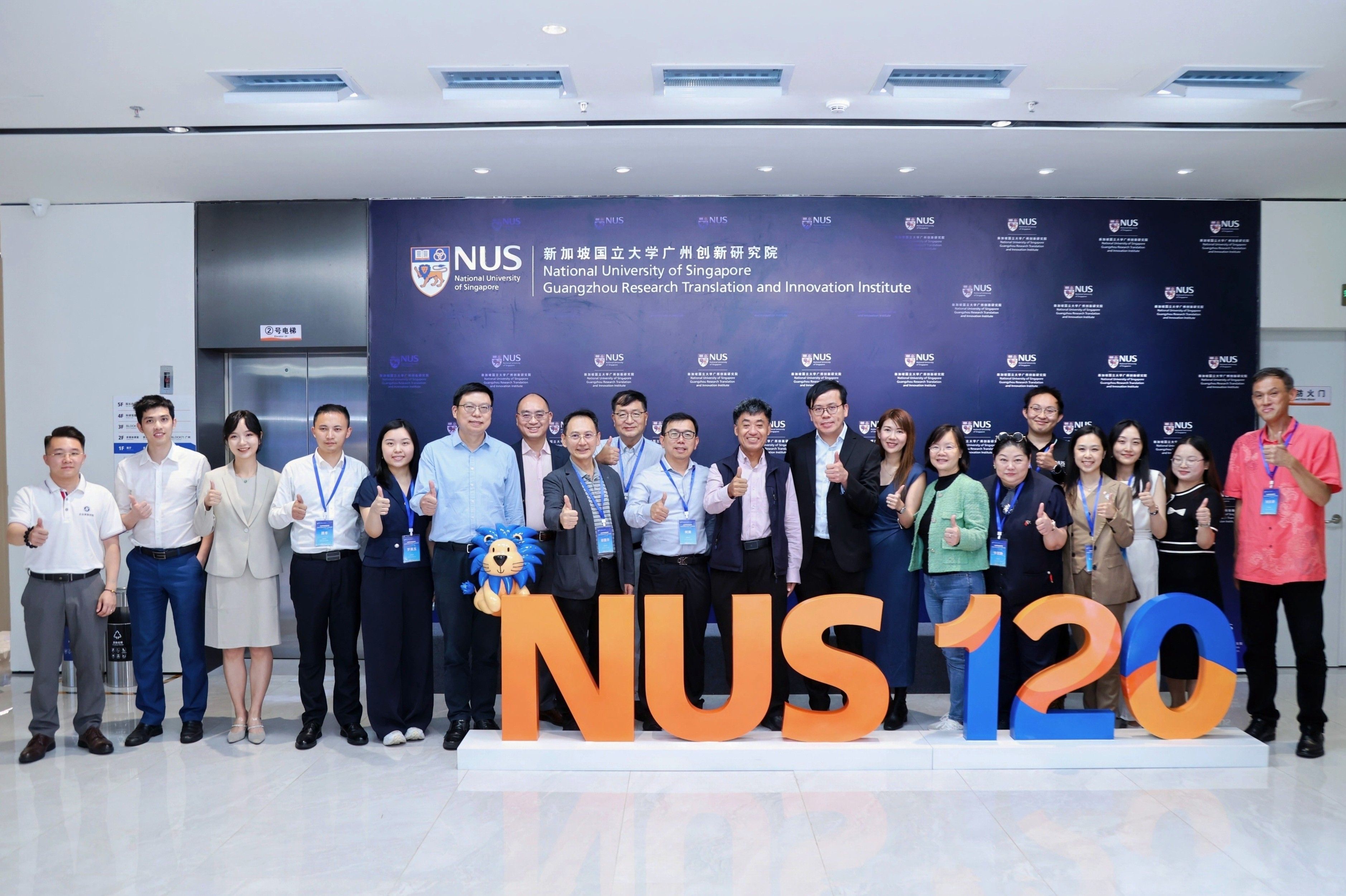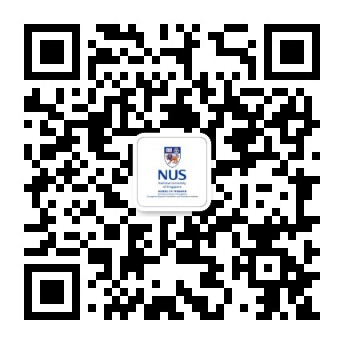On July 31, the Technological Innovation Workshop—"Co-creating a Sustainable Future: New Industrial Opportunities under China-Singapore Technological Collaboration"—was successfully held at the NUS Guangzhou Research Translation and Innovation Institute (NUS GRTII). Jointly organized by NUS GRTII and Singapore Global Network (SGN), and co-organized by the Singapore Chamber of Commerce & Industry in China (South China), Guangdong High-Tech Industry Chamber of Commerce, and Greater Bay Area Import & Export Chamber of Commerce, the event received strong support from the NUS Hong Kong Alumni Association, NUS Hangzhou Alumni Association, NUS Business School South China Alumni Network, Huawei Harmony Intelligence, and SinoVest Capital.
The workshop convened representatives from Chinese and Singaporean governments, leading academic institutions, industry leaders, and young innovators. Focusing on China-Singapore technological collaboration under the wave of sustainable development, participants engaged in in-depth exchanges on critical issues, including industrial internet, technology transfer, and international talent mechanisms, charting a new blueprint for bilateral cooperation in technological innovation.
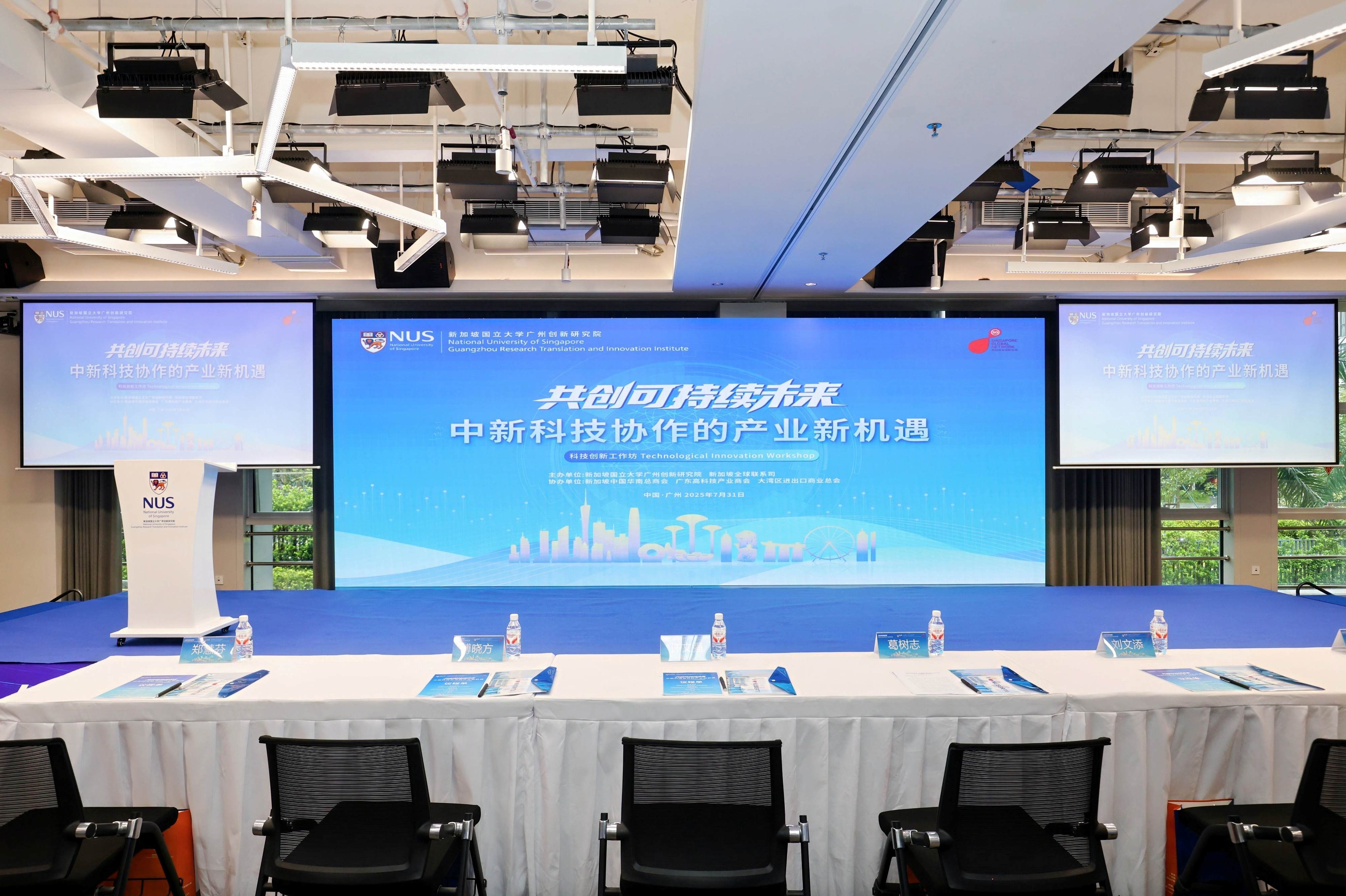
Opening Remarks
The event commenced with an opening speech by Professor Shuzhi Sam Ge, Director of NUS GRTII, extending a warm welcome to attendees. In his address, Professor Ge emphasized the fact that technological innovation is reshaping economic landscapes. He highlighted Guangzhou's position as the innovation hub of the Guangdong-Hong Kong-Macao Greater Bay Area (GBA), underpinned by its robust manufacturing base, dynamic technology enterprises, and favorable policy environment. Meanwhile, he noted Singapore's critical resources in finance, legal frameworks, and taxation as a global trade nexus, which prove essential for Chinese enterprises pursuing internationalization. The Institute affirmed its commitment to introducing cutting-edge global research outcomes and serving as a pivotal bridge for China-Singapore innovation and industrial collaboration.
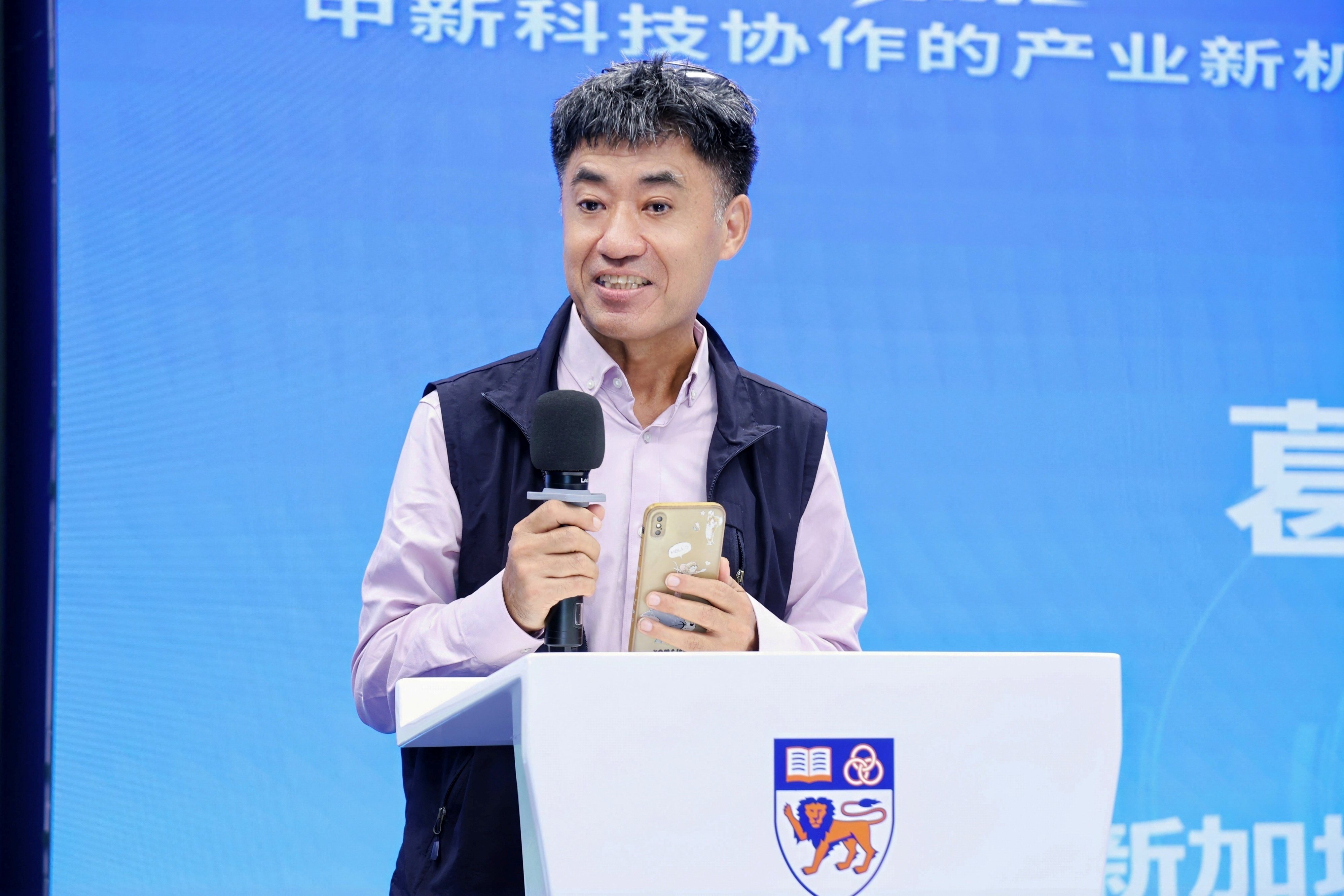
Mr. Marcus Hee, Director of the Singapore Global Network (SGN), subsequently delivered his address. He outlined SGN's core mandate to engage overseas Singaporeans and international partners through curated collaboration platforms, uniting like-minded individuals for mutual development. Mr. Hee specifically underscored SGN's strong emphasis on partnering with institutions such as NUS GRTII. Such collaborations, he noted, aim to further expand overseas networks and opportunities for cooperation by converging talents and sharing resources.
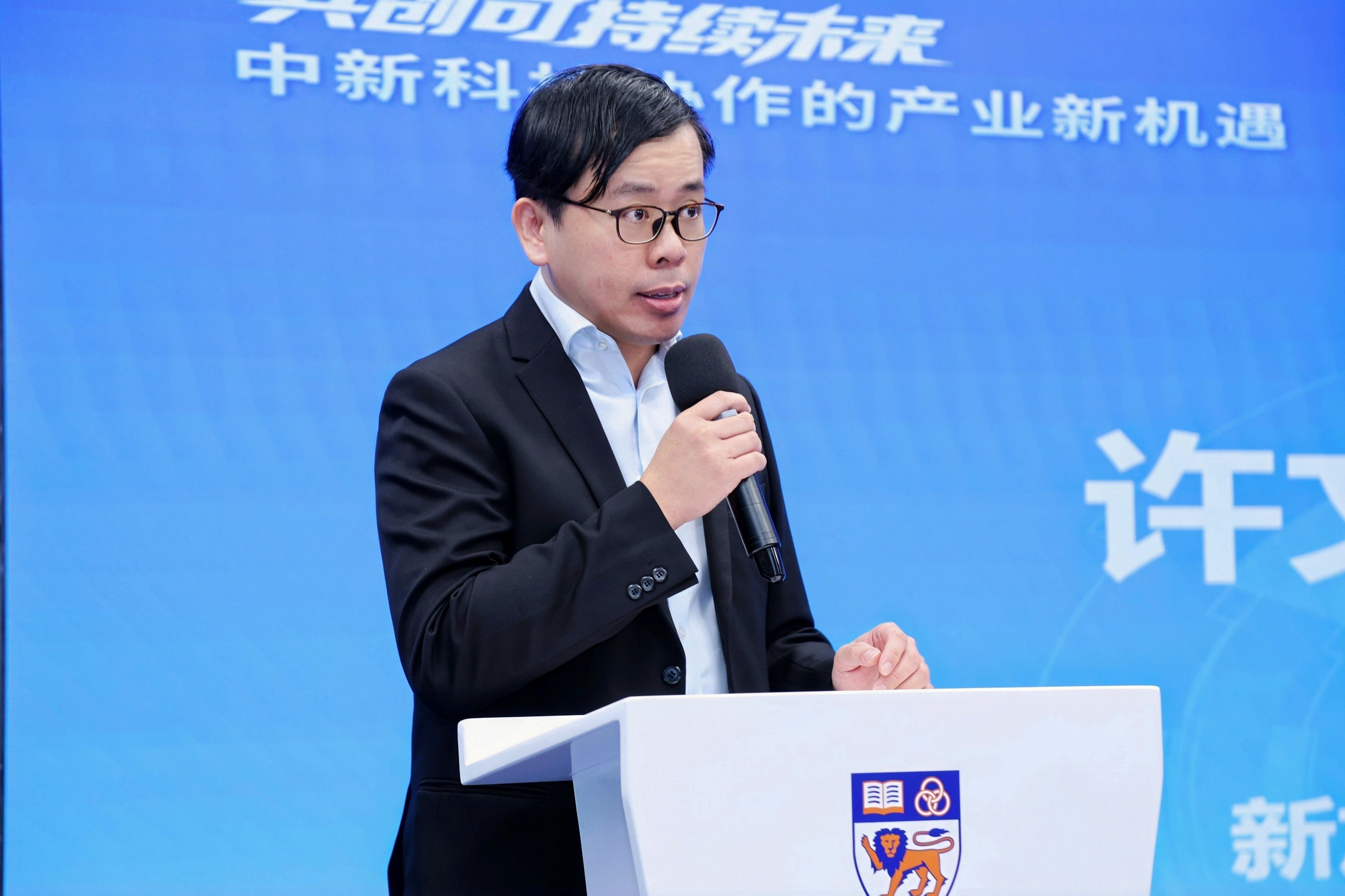
Keynote Speeches
Dr. Shen Yiwen, Honorary Senior Fellow at NUS Business Analytics and Operations and Director of the Supply Chain Joint Lab, focused on globalization strategies for Chinese enterprises in the AI era. He outlined the core strategic imperative for businesses to develop global perspectives and integrate worldwide resources. Through case studies on two-point trade, three-point trade, and international headquarters models, Dr. Shen demonstrated how these global deployment frameworks accelerate enterprise growth. He further advised enterprises to capitalize on AI-driven manufacturing transformation opportunities while navigating challenges such as ecosystem competition and industrial chain integration. Long-term adaptation through export globalization processes and cultural integration, he noted, remains essential for embedding into global value chains.
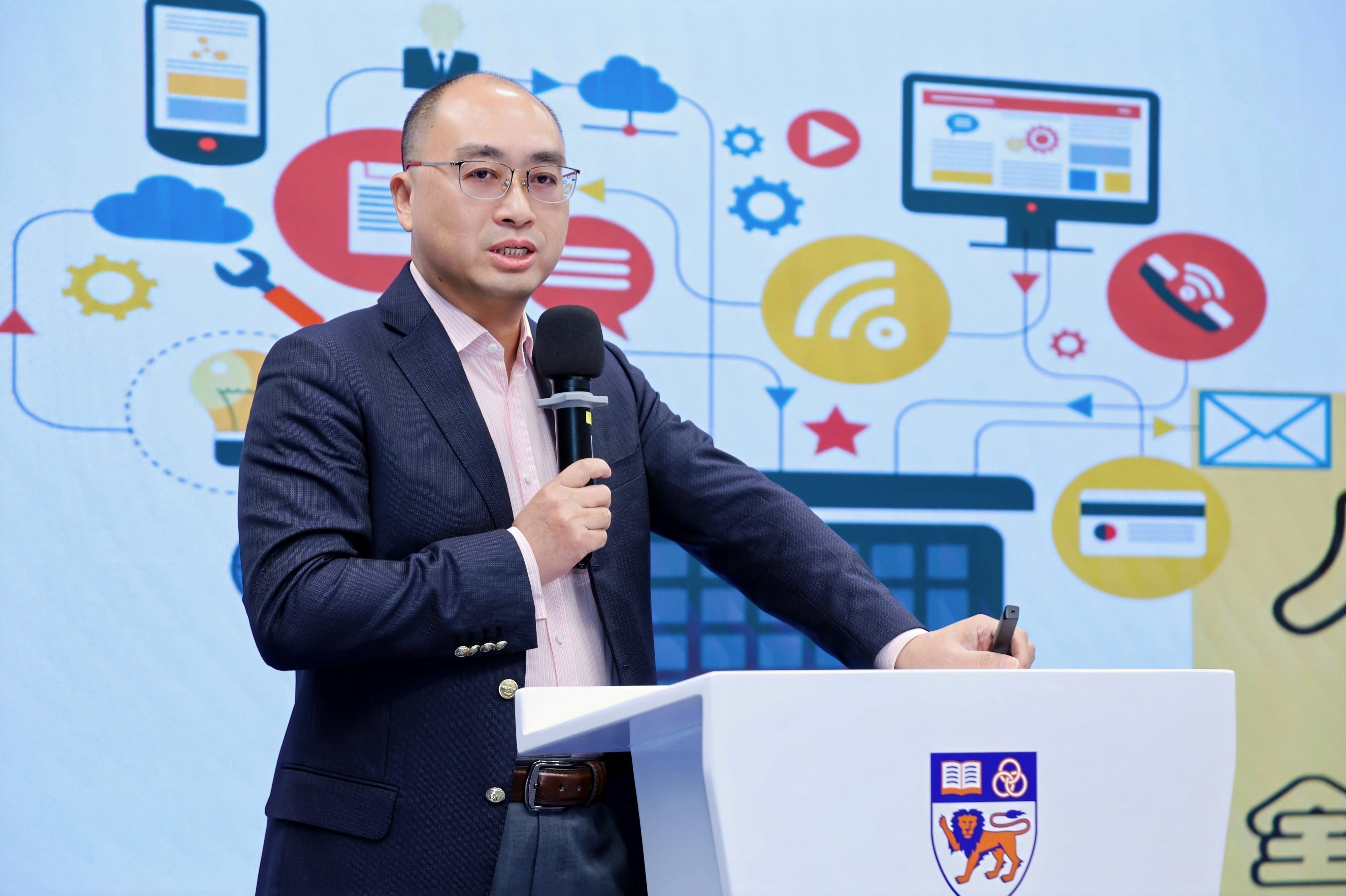
Mr. He Han, Founding Partner of SinoVest Capital, shared practical insights from his investments in AI and semiconductors. Emphasizing technology two-way flows between Singapore – with significant investments in biotech, semiconductors, and AI – and the Chinese mainland’s strengths in green technology and manufacturing, he advocated the "Singapore+1" strategy. This approach leverages resource complementarity between Singapore and Southeast Asia, urging enterprises to deepen their presence in the Chinese market while utilizing Singapore and Malaysia as strategic pivots for global expansion.
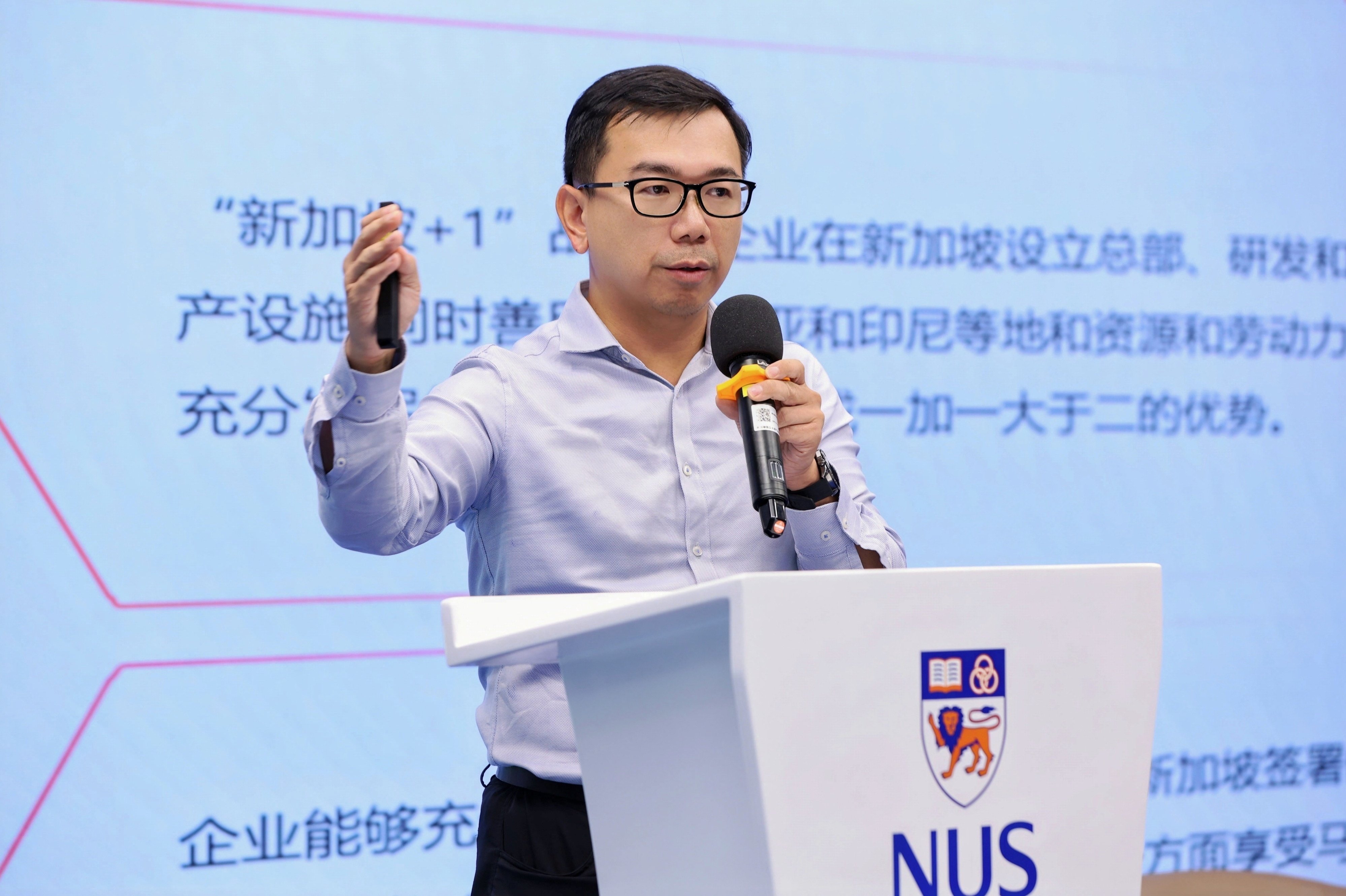
Mr. Wang Lizong, Member of the 14th National Committee of the CPPCC and President of the Guangdong High-Tech Industry Chamber of Commerce, addressed institutional frameworks for high-quality China-Singapore tech collaboration and regional strategies for industrial innovation. He stressed that pursuing technological and scientific cooperation needs high-level institutional arrangements and physical platforms that synergize China’s vast market and excellent infrastructure with Singapore’s international teams, standards, talent pool, and intellectual property advantages. To overcome existing barriers, including data connectivity issues, standards misalignment, and impediments to factor mobility, Mr. Wang proposed focused cooperation in AI, biomedicine, and green energy. Concrete pathways, such as establishing standards alliances, promoting joint R&D initiatives, and fostering youth partnerships, were highlighted to maximize complementary strengths.
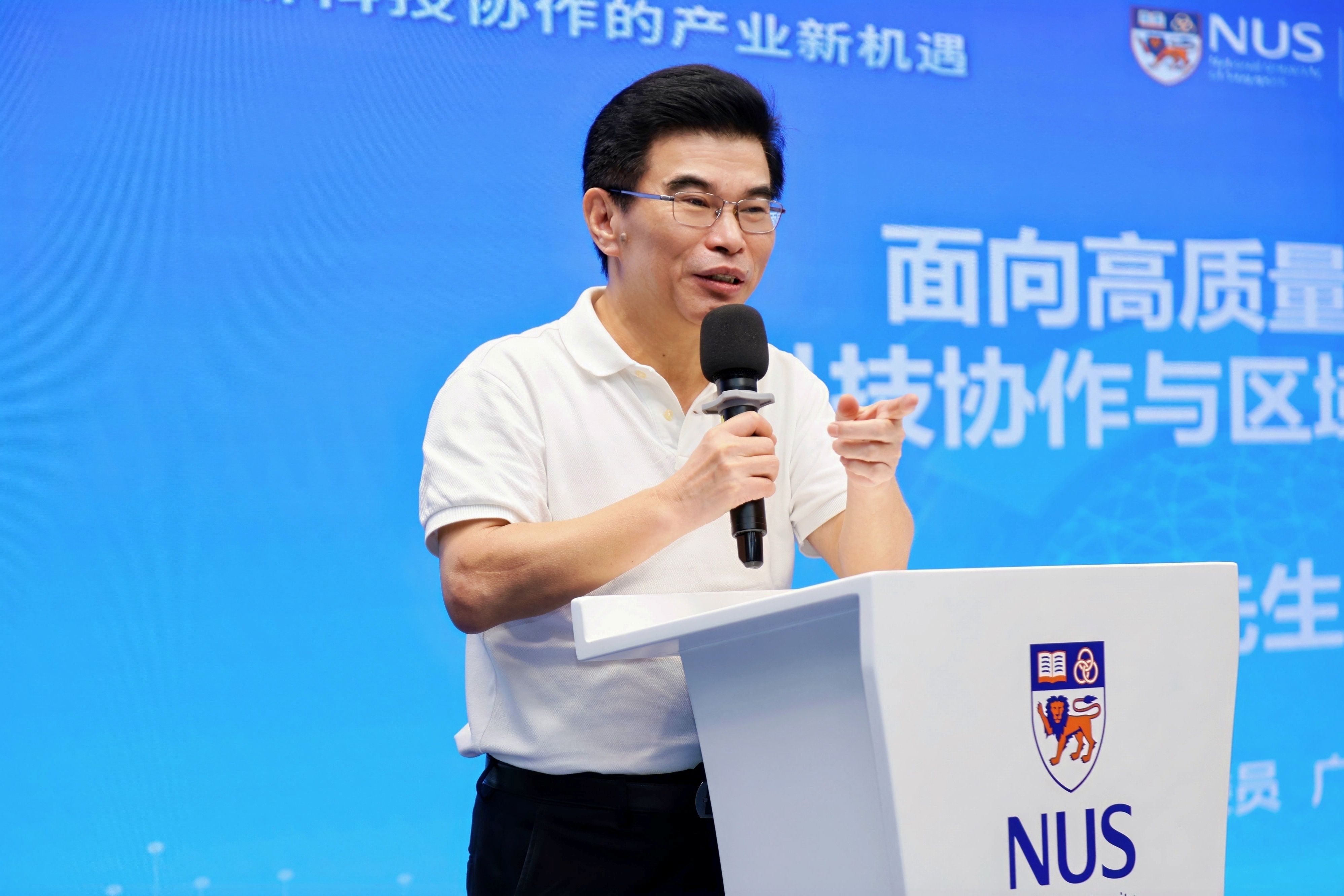
Ms. Li Chunxin, Head of the Research Translation Office at NUS GRTII, presented the Institute’s approach to commercializing research outcomes. Aligning with industrial needs in the Guangzhou Development District and NUS’s academic expertise, NUS GRTII has established seven priority fields – including smart cities, AI Application, and biomedicine – appointing over 50 NUS professors as principal investigators. Ms. Li emphasized the Institute’s core mission to advance research commercialization, address practical industry challenges, and contribute to local development. She welcomed cross-sector exchanges and collaboration to accelerate industrial progress.
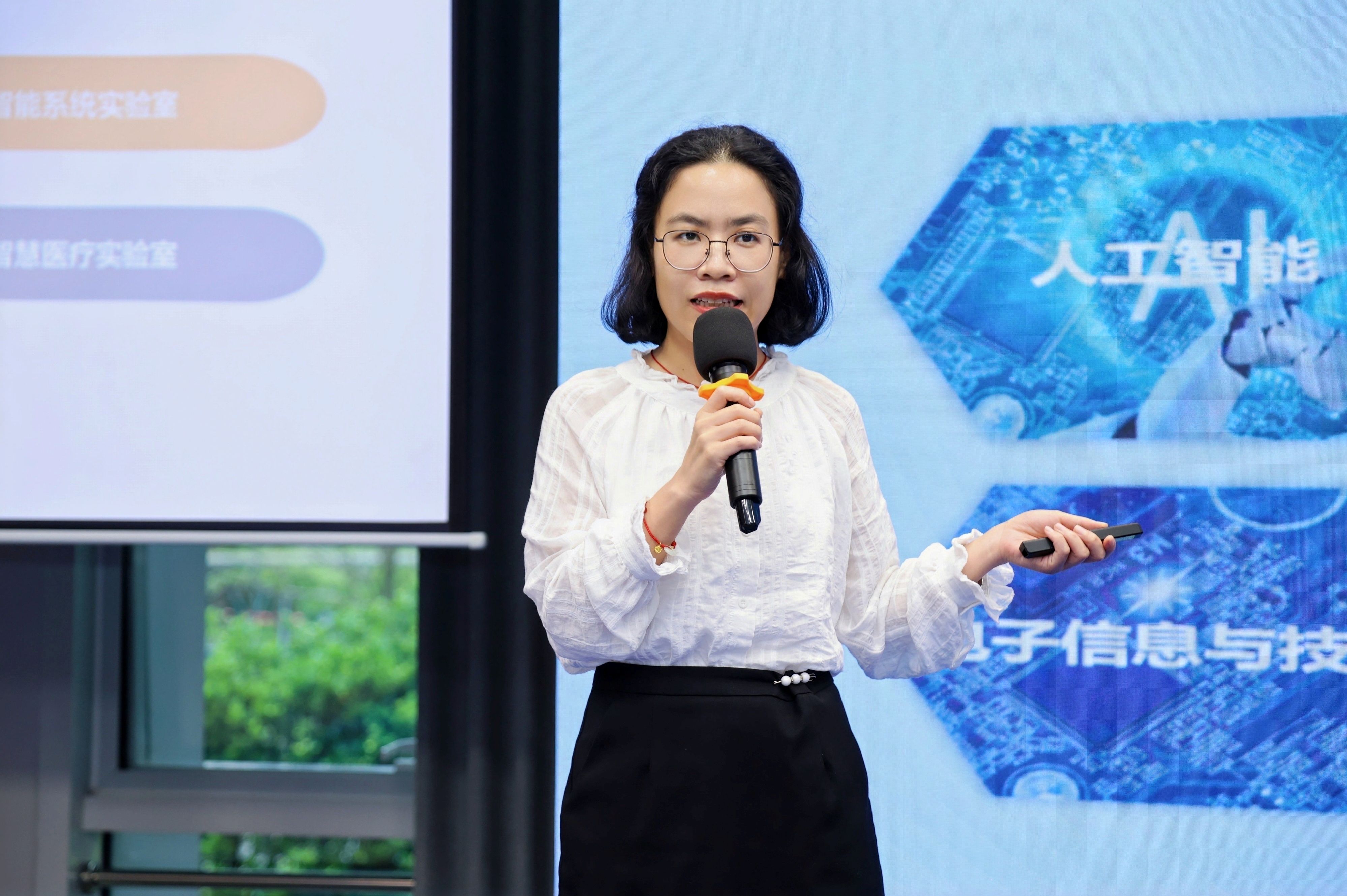
Ms. Fu Xiaofang, Senior Associate Director of NUS GRTII, delivered her speech themed “The Institute’s innovation internationalization strategy under the China-Singapore Forward-Looking Partnership” and shared the major achievements of NUS GRTII. By leveraging NUS’s global incubation network, NUS GRTII empowers SMEs in Huangpu District’s strategic sectors, such as smart manufacturing and AI applications, through targeted talent deployment and technology matching. Moreover, the Institute concurrently provides incubation services – including maker spaces, venture planning, and resource coordination – to integrate Singapore’s advanced technologies with GBA supply chains. Empowered by NUS, the institute’s educational programs boasted cutting-edge knowledge for facilitating enterprises’ overseas operations. Future initiatives will deepen platform development for co-building an international technological innovation ecosystem in the GBA.
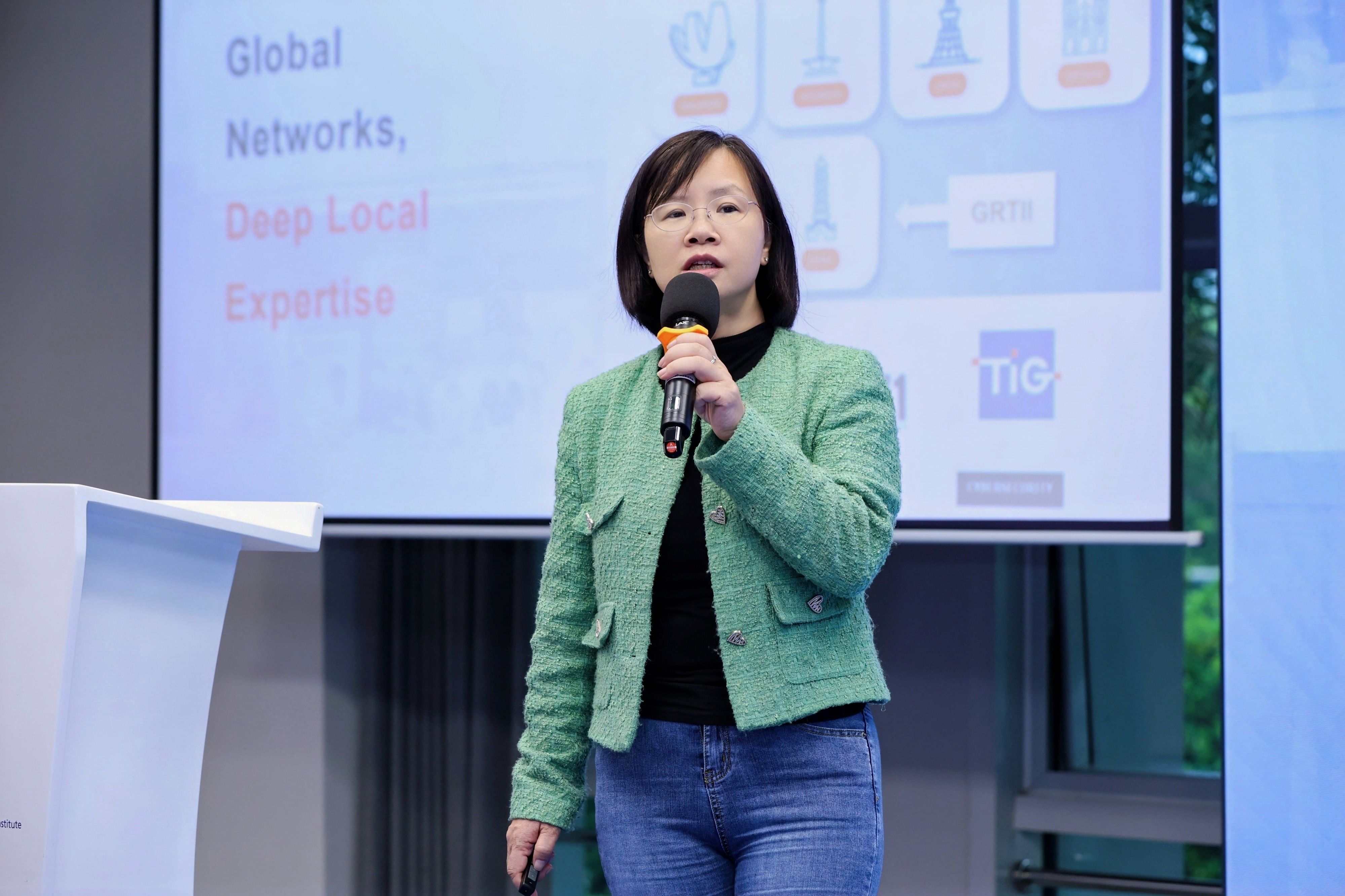
Expert Dialogue: Exploring Pathways for China-Singapore Tech Collaboration
The expert dialogue, moderated by Ms. Fu Xiaofang, Senior Associate Director of the NUS Guangzhou Research Translation and Innovation Institute (NUS GRTII), engaged industry leaders in multidimensional discussions on practical approaches to China-Singapore technological cooperation. Participants included Mr. Xu Xiaowei (Founder of Zhijiang Qicaiyun; Chairman, NUS Hangzhou Alumni Association), Mr. He Han (Founding Partner, SinoVest Capital; Chairman, NUS Hong Kong Alumni Association), Ms. Deng Junxin (Founding Partner, Industrial Capital) and Mr. Li Xiaoye (General Manager, Asset Management Center, Excellence Property Group). Key discussion areas encompassed technological empowerment, development models, trends of investment and financing in and perspectives on medical device industry, corporate overseas operations and technological demands, and AI’s impacts on industries.
Cross-sector exchanges yielded a practical framework, "Model Introduction - Two-Way Output - Global Deployment" for China-Singapore tech collaboration. The dialogue emphasized a synergistic innovation pathway anchored by talent connectivity, capital facilitation, and institutional platforms. These insights provide valuable reference points for accelerating technology resource flows and advancing high-quality cooperation between both nations.
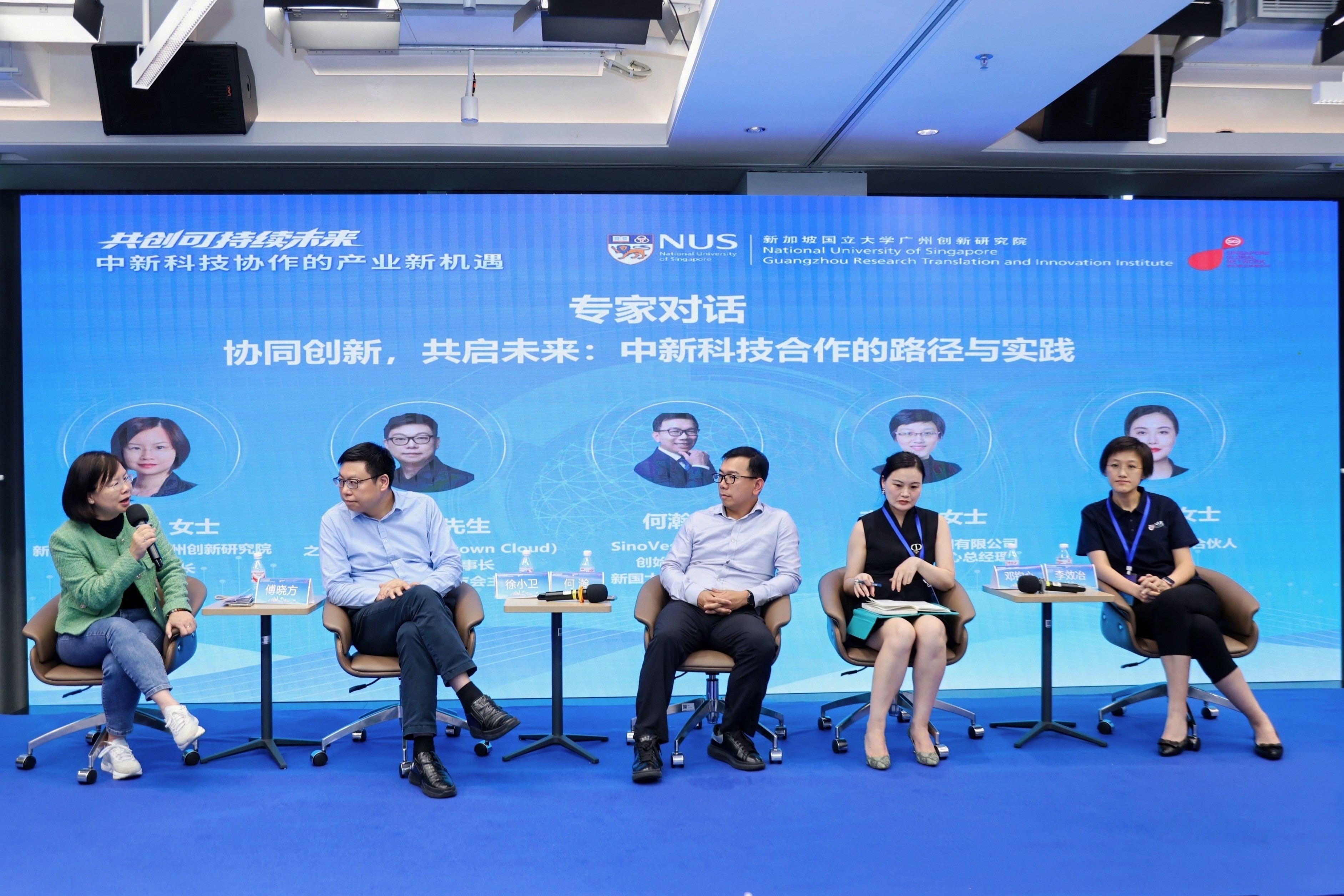
Centered on technological innovation and international cooperation, this event outlined collaborative pathways for China-Singapore and the Greater Bay Area (GBA) in building innovation ecosystems and fostering corporate globalization. It highlighted the complementary strengths and cooperative achievements of both sides in technology transfer, industrial integration, and talent development. As a key driver of China-Singapore innovation synergy and high-quality development in the GBA, NUS GRTII will continue leveraging NUS's global resource network and research excellence to synergize the GBA's robust manufacturing foundation and vibrant industrial ecosystem. Through its "Lab-to-Global-Market" direct pathway mechanism, NUS GRTII will facilitate the two-way flow of global cutting-edge technology commercialization and the international expansion of Chinese deep-tech.
